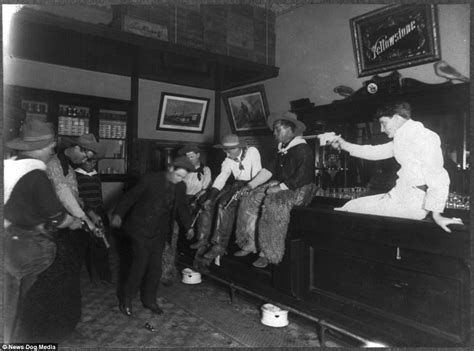
A woman planning a family reunion is questioning whether to limit the guest list to relatives only or extend invitations to close friends, sparking debate about the boundaries of family events and potential hurt feelings.
The dilemma, posed to advice columnist “Dear Abby,” highlights the complexities of modern relationships and the evolving definition of “family.” The woman, identified as “Planning Ahead in California,” is organizing the reunion for her side of the family, a gathering that typically includes a substantial number of attendees. While eager to reconnect with loved ones, she also has several close friends she considers “like family” and feels conflicted about excluding them.
“My question is: Should reunions be strictly for relatives only, or is it OK to include a few close friends who are like family?” she wrote to Abby. She acknowledged the potential for logistical challenges and social dynamics to shift if friends are included, noting, “I have a few close friends I would like to invite. My family reunions are large, and adding a few more people shouldn’t be a problem. However, I am not sure if it is proper to invite nonrelatives to what is traditionally a family affair.”
Abigail Van Buren, the current “Dear Abby,” responded by validating the woman’s feelings but ultimately advising her to maintain the traditional family-only boundary for the reunion. “I think reunions should be for family only,” Abby stated. “If you start including people who are not blood relatives, others may wonder why THEY weren’t included. It could create hurt feelings. If you want to get together with your friends, schedule a separate event.”
This advice reflects a common perspective that family reunions serve a specific purpose: to strengthen bonds among blood relatives and provide a space for shared heritage and memories. Introducing non-family members, while well-intentioned, can alter the dynamic and potentially dilute the core focus of the gathering.
The core of the issue lies in defining “family” in contemporary society. While blood relations traditionally define family structures, the concept has expanded to encompass chosen families, close friendships, and other supportive networks. This shift presents a challenge when planning events that historically adhere to strict familial boundaries.
Planning Ahead’s consideration reflects a growing trend of individuals valuing close friendships as deeply as, or even more than, some familial relationships. In some cases, friends offer a level of emotional support, understanding, and companionship that blood relatives may not provide. This underscores the importance of acknowledging the diverse forms that families can take in modern life.
However, as Abby points out, deviating from the traditional definition of a family reunion carries the risk of creating unintended consequences. Including some friends but not others could lead to feelings of exclusion and resentment among both family members and friends. Furthermore, the presence of non-family members might alter the dynamic of conversations and interactions, potentially hindering the opportunity for deeper connections among relatives.
The decision of whether to include friends in a family reunion ultimately rests on the individual circumstances and preferences of the organizer and the family involved. However, considering potential implications and prioritizing clear communication is crucial to ensure a positive and inclusive experience for everyone. Some families might be more open to welcoming non-relatives, while others may prefer to maintain stricter boundaries. Understanding these preferences and aligning the event accordingly is essential for minimizing potential conflicts and maximizing enjoyment.
Alternatives to including friends in the family reunion could include organizing separate events specifically for friends, such as a casual get-together or a themed party. This allows for dedicated time and space to celebrate those friendships without compromising the integrity of the family reunion. Another option could be to organize a pre- or post-reunion event that includes both family and friends, offering a compromise that acknowledges the importance of both groups.
The “Dear Abby” advice highlights the delicate balance between honoring tradition and embracing evolving social norms. As family structures continue to evolve, the definition of “family” will likely continue to be debated and redefined. When planning family events, thoughtful consideration of these evolving dynamics is crucial for creating inclusive and meaningful experiences for all involved.
In-Depth Analysis and Expanded Context
The question posed to “Dear Abby” by “Planning Ahead in California” taps into a complex and increasingly relevant debate about the nature of family, belonging, and the purpose of traditional gatherings in modern society. The dilemma highlights how the conventional understanding of family, rooted in bloodlines and legal ties, is being challenged by the growing importance of chosen families and close friendships.
The traditional family reunion, as described by “Planning Ahead,” serves as a space for relatives to reconnect, share memories, and reinforce familial bonds. These gatherings often involve multiple generations and provide an opportunity for younger members to learn about their family history and heritage. They can be powerful tools for maintaining cultural traditions and fostering a sense of identity. The structure and dynamics of these reunions are often shaped by established family norms and expectations. Introducing non-family members into this established environment can disrupt the flow and potentially alter the experience for everyone involved.
The rise of chosen families reflects a significant shift in societal attitudes towards relationships and belonging. As individuals increasingly prioritize personal fulfillment and emotional well-being, they are actively seeking out supportive networks that provide a sense of community and unconditional acceptance. These chosen families can consist of close friends, mentors, colleagues, or any individuals who offer a sense of belonging and mutual support. For some, these chosen families provide a more stable and nurturing environment than their biological families. This underlines the significance of acknowledging and celebrating these non-traditional relationships.
However, the integration of chosen families into traditional family events raises several considerations. As “Dear Abby” points out, inviting some friends but not others can lead to feelings of exclusion and resentment. This requires careful consideration of the social dynamics within the friend group and the potential impact on individual relationships. Furthermore, the presence of non-family members can alter the conversations and interactions that take place during the reunion. Family members might feel less comfortable sharing personal stories or discussing sensitive topics in front of outsiders. This could hinder the opportunity for deeper connections and meaningful conversations among relatives.
Another important factor to consider is the logistical implications of inviting non-family members. Family reunions often involve shared accommodations, meals, and activities. Adding extra guests can strain resources and potentially create overcrowding. It is crucial to ensure that the reunion can comfortably accommodate all attendees without compromising the experience for anyone. This might involve increasing the budget, securing larger accommodations, or adjusting the planned activities.
The “Dear Abby” response reflects a cautious approach, prioritizing the traditional purpose of family reunions and minimizing the potential for conflict. However, some families might be more open to incorporating non-family members into their gatherings. This could depend on the specific dynamics within the family, the closeness of the friendships involved, and the overall goals of the reunion. If the primary goal is to create a welcoming and inclusive environment for everyone, then inviting close friends might be a natural extension of that vision.
Ultimately, the decision of whether to include friends in a family reunion should be made on a case-by-case basis, considering the specific circumstances and preferences of the family involved. Open and honest communication is essential for ensuring that everyone feels heard and respected. Before extending invitations to non-family members, it is advisable to consult with key family members and gauge their comfort level. This can help to avoid misunderstandings and ensure that the reunion remains a positive and enjoyable experience for all.
One alternative approach could be to create different tiers of events within the reunion. For example, the core reunion activities, such as family meals and heritage celebrations, could be reserved for relatives only. However, additional social events, such as a casual barbecue or a game night, could be open to friends and other guests. This allows for a balance between honoring the traditional purpose of the reunion and creating opportunities to connect with chosen family.
Another strategy could be to host a separate event specifically for friends, either before or after the family reunion. This provides a dedicated space for celebrating those relationships without compromising the integrity of the family gathering. This could be a simple dinner party, a weekend getaway, or any other activity that allows for meaningful connection and quality time.
The “Dear Abby” advice serves as a reminder that family reunions are not static events but rather evolving traditions that can be adapted to reflect changing social norms and individual preferences. By carefully considering the potential implications and prioritizing open communication, families can create reunions that are both meaningful and inclusive for all involved. The conversation surrounding this topic underscores the ongoing debate about the definition of family and the importance of finding ways to balance tradition with evolving societal values. The core takeaway from this “Dear Abby” column is that thoughtful consideration and communication are essential for navigating these complex issues and ensuring that family gatherings remain a source of joy and connection for everyone.
The question “Planning Ahead” poses also highlights the societal pressure to conform to traditional family structures and expectations. While chosen families and close friendships are increasingly recognized and valued, there can still be a sense of obligation to prioritize blood relations, even if those relationships are not as fulfilling or supportive. This pressure can lead to feelings of guilt and conflict when individuals try to balance their obligations to biological family with their desire to celebrate and include their chosen family.
The “Dear Abby” response, while well-intentioned, also reflects a potential bias towards traditional family structures. While the advice to maintain the family-only boundary is understandable in the context of minimizing potential conflict, it also reinforces the idea that blood relations should always take precedence over other forms of relationships. This perspective may not resonate with individuals who have found more support and belonging in their chosen families than in their biological families.
The ongoing debate about the definition of family is further complicated by legal and social structures that are primarily designed to support traditional family units. For example, inheritance laws, healthcare benefits, and adoption policies often favor blood relations and legal spouses. This can create challenges for chosen families and limit their ability to access the same rights and protections as traditional families.
As societal attitudes towards family continue to evolve, it is crucial to advocate for more inclusive legal and social structures that recognize and support the diverse forms that families can take. This includes advocating for policies that protect the rights of chosen families, such as the right to visit loved ones in the hospital, make medical decisions on their behalf, and inherit property.
The “Dear Abby” column provides a valuable opportunity to reflect on the evolving definition of family and the challenges of balancing tradition with evolving social norms. By engaging in open and honest conversations, families can create gatherings that are both meaningful and inclusive for all involved. This requires a willingness to challenge traditional assumptions and embrace the diversity of modern relationships. Ultimately, the goal should be to create a sense of belonging and connection for everyone, regardless of their blood ties or legal status.
Frequently Asked Questions (FAQs)
Q1: What is the main issue discussed in the “Dear Abby” column?
- A: The main issue is whether a person planning a family reunion should limit the guest list to relatives only or include close friends who are considered “like family.”
Q2: What was Dear Abby’s advice on including friends in a family reunion?
- A: Dear Abby advised against including friends, suggesting that reunions should be for family only to avoid potential hurt feelings and questions about why some non-relatives were invited while others were not. “I think reunions should be for family only,” Abby stated. “If you start including people who are not blood relatives, others may wonder why THEY weren’t included. It could create hurt feelings. If you want to get together with your friends, schedule a separate event.”
Q3: Why might someone want to include friends in a family reunion?
- A: Some individuals have close friends they consider “like family” and want to include them in significant life events, including family reunions, because these friends provide emotional support, companionship, and a sense of belonging. This reflects the growing importance of chosen families in modern society.
Q4: What are the potential downsides of including friends in a family reunion?
- A: Potential downsides include the risk of creating feelings of exclusion among family members or other friends who were not invited, altering the dynamic of the reunion, and straining logistical resources such as accommodations and meals. Also, family members may feel less comfortable sharing personal stories in front of outsiders.
Q5: What are some alternative solutions to including friends in the family reunion?
- A: Alternative solutions include organizing separate events specifically for friends, hosting a pre- or post-reunion event that includes both family and friends, or creating different tiers of events within the reunion, with some activities reserved for relatives only and others open to friends.
Q6: What does the dilemma of inviting friends to a family reunion highlight about contemporary society?
- A: The dilemma highlights the evolving definition of “family” in contemporary society. While blood relations traditionally define family structures, the concept has expanded to encompass chosen families, close friendships, and other supportive networks. This shift presents a challenge when planning events that historically adhere to strict familial boundaries. It also underscores the societal pressure to conform to traditional family structures, even when chosen families provide more support.
Q7: What factors should be considered when deciding whether to include friends in a family reunion?
- A: Factors to consider include the specific dynamics within the family, the closeness of the friendships involved, the overall goals of the reunion, the potential for creating feelings of exclusion, and the logistical implications of adding extra guests.
Q8: What is the importance of open communication when planning a family reunion with the possibility of including non-relatives?
- A: Open and honest communication is essential for ensuring that everyone feels heard and respected. Consulting with key family members and gauging their comfort level before extending invitations to non-family members can help to avoid misunderstandings and ensure that the reunion remains a positive and enjoyable experience for all.
Q9: Does the “Dear Abby” response reflect a potential bias towards traditional family structures?
- A: Yes, the “Dear Abby” response, while well-intentioned, reflects a potential bias towards traditional family structures. While the advice to maintain the family-only boundary is understandable in the context of minimizing potential conflict, it also reinforces the idea that blood relations should always take precedence over other forms of relationships. This perspective may not resonate with individuals who have found more support and belonging in their chosen families than in their biological families.
Q10: What larger societal issues are related to the question of including friends in family reunions?
- A: Larger societal issues related to the question include the ongoing debate about the definition of family, the societal pressure to conform to traditional family structures, and the need for more inclusive legal and social structures that recognize and support the diverse forms that families can take. This includes advocating for policies that protect the rights of chosen families.









